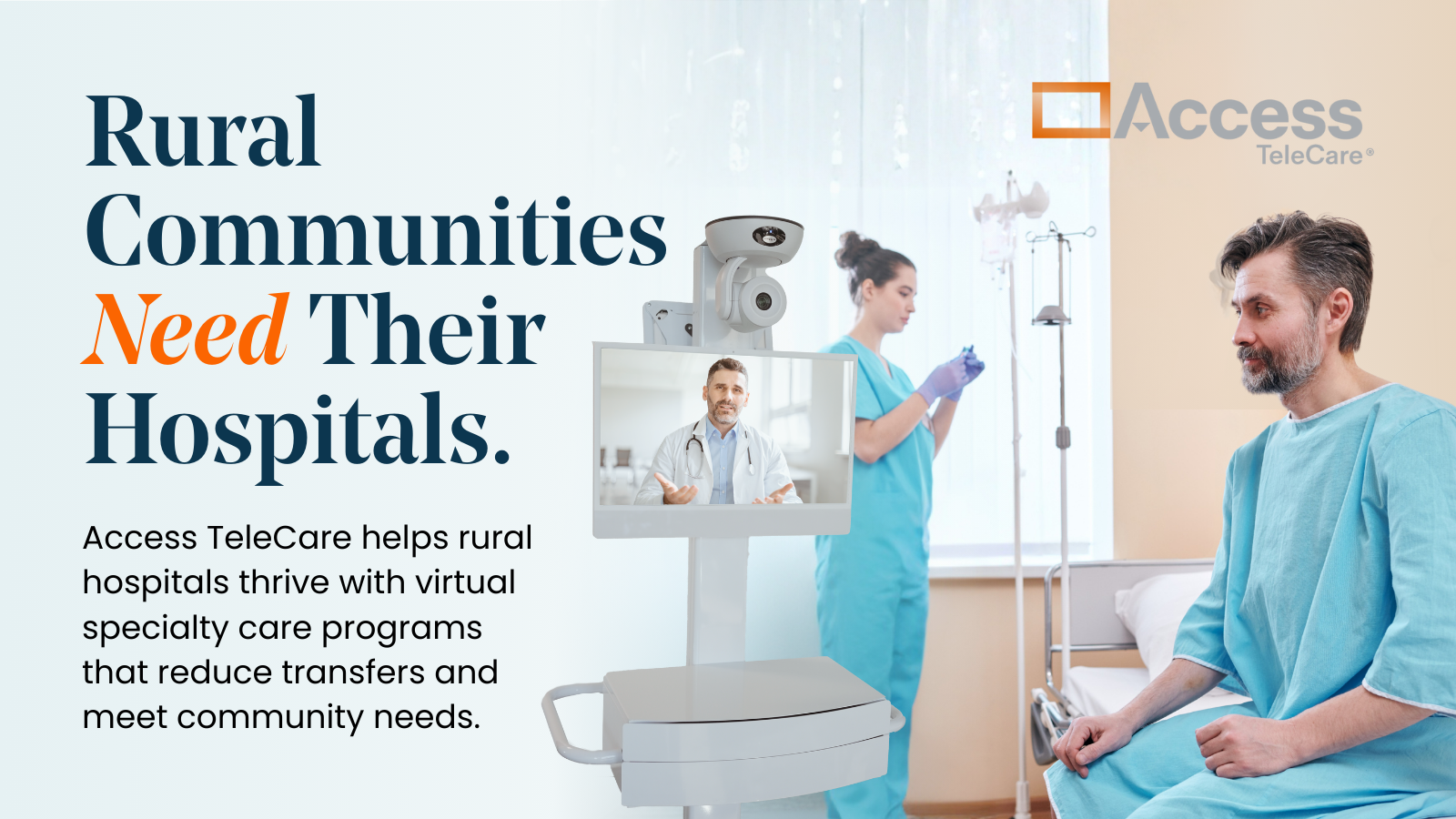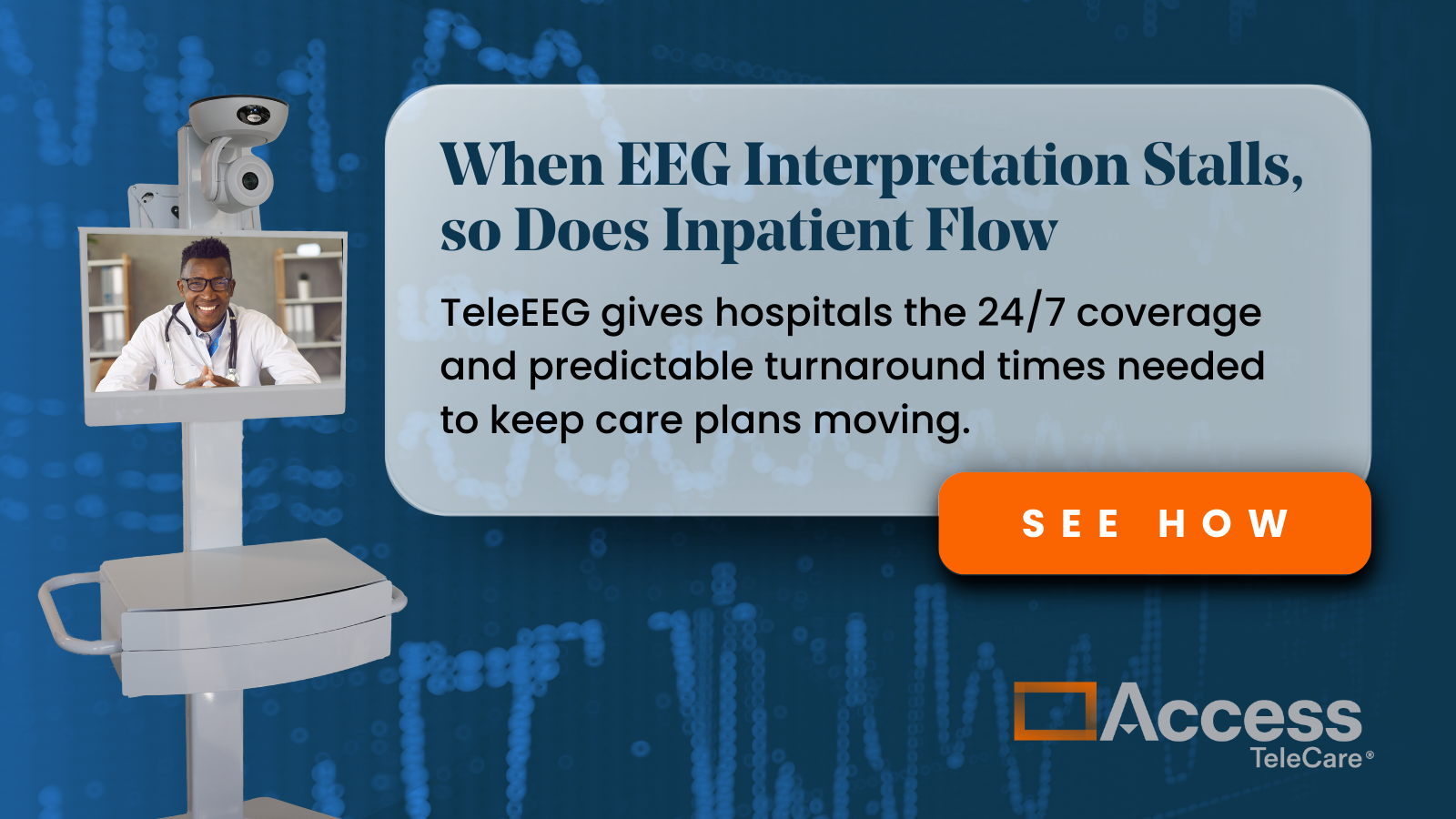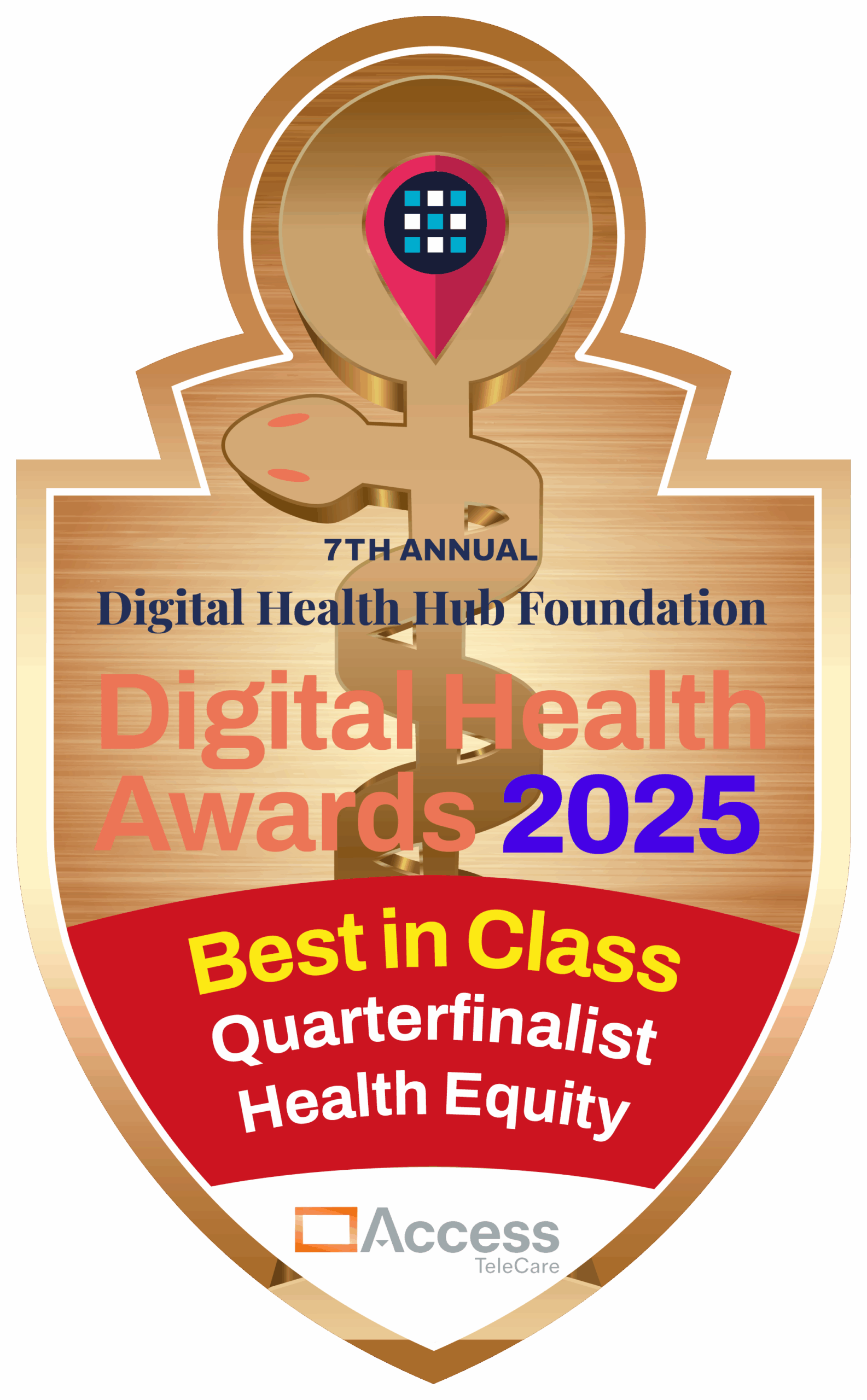A patient arrives in the emergency department, confused and combative. He’d been discharged from inpatient behavioral health care just one day earlier. Law enforcement suspects drug use. His wife insists it’s psychiatric. The hospital requests a behavioral health consult.
But what he really needed was a stroke team.
An Access TeleCare virtual behavioral health physician was called in for the evaluation. The patient was too altered to assess. But the physician didn’t stop there. He noticed stroke-like symptoms and immediately contacted the attending physician to recommend stroke screening.
A CT scan confirmed a large vessel occlusion. The patient was transferred for life-saving stroke treatment — because someone looked beyond the immediate.
This case shows how virtual care isn’t limited to narrow consults. When clinicians are trained, supported, and encouraged to think holistically and broadly, they save lives.
Read the case study to see how Virtual Behavioral Health delivered more than a diagnosis — it delivered a second chance.









